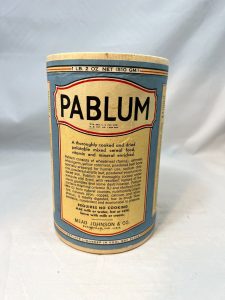CEO Shoptalk: The Limits of Servant Leadership

One of the problems as a leader of a business enterprise with being a giver is how to set limits because, my friends, the takers have no limits.
It became fashionable some time ago in the woke leadership press to describe the CEO of every company on the face of the earth as a “servant leader,” thereby giving rise to the catchy and woke phrase: servant leadership.
This was then not a novel concept. Any man who had ever served in the military knew the maxim: “Take care of your men.”
Good officers made sure their men’s pay was right, they got the promotions/awards/training/schools they deserved, they were in good shape physically, their gear was sound and in good repair, the chow was good, they got treated for illness and wounds, discipline was fair, they took leave, and they had a forum in which to address their grievances.
In return, the men soldiered hard and fought well when required. It was a symbiotic relationship within a wildly authoritarian structure. It was measured by elan, esprit de corps, and morale.
Officers who took care of their men — going back to George Washington — did well in the Army and the men could smell a prick a mile away. It was good for the business of soldiering.
OK, so what, Big Red Car?
Long before I ever heard of the term servant leadership, I used to instinctively practice it because:
1. When your work force is correctly motivated and inspired — different things entirely — productivity increases.
2. An employer owns its workers’ problems.
Can you real world this for us, Big Red Car?
Certainly, amigos.
Back in the day before the Covid Pandemic, we used to wrestle with the predictable impact of the seasonal flu.
Someone in accounting would get sick, infect accounts receivable, accounts payable — soon everyone was sick and the bean counters were missing work and failing to produce.
It would then go around the company until everyone was coughing, throwing up, running to the bathroom, and blowing their nose. Miserable six weeks or so.
Gigantic loss of productivity.
So what happened then, Big Red Car?
So, I approached the company health care supplier and asked, “How about y’all spring for some preventative flu shots?”
There answer was initially, “Buzz off and send your premiums in on time.”
I kicked the question up the chain of command and soon I was speaking to someone in Harford, Connecticut – the Mecca of insurance in the US.
“So, look, Dick, why don’t you spring for flu shots for my some 300+/- people?”
“Why would we do that, Big Red Car?” Dick asked.
“Because nobody would get sick and your insurance company would be more profitable as a result and my company would be more productive and we would have a long term relationship rather than my finding another more forward thinking health insurance company?”
“Hmmm,” Dick said. I imagined Dick in a JC Penney, two button, gray suit with no cuffs on his pants, a white shirt with a blue tie, silver monogrammed tie bar that was a present from his mother-in-law, black belt, black tie shoes over black socks, and a crew cut sitting at a metal desk in a small office with a black dial phone. There was a picture of his wife on his desk and two kids. He drove a Ford.
We worked it out — they wanted to charge $30/shot, but I talked them out of it saying it was just an experiment — and the insurance company sent a nurse and a nurse’s aid and inoculated the whole bloody company. She was quite attractive and efficient and fast.
So what happened then, Big Red Car?
Dear reader, thereafter the insurance companies — all of them — began to include free flu shots as part of any basic health insurance program.
The US Gov’t began to pay the drug stores to provide free flu shots and Medicare gave everybody in that system free flu shots.
It worked like a champ.
So, what’s the point, Big Red Car?
First that it worked as envisioned — healthier workers, less lost productivity — and at no time did anybody use the term “servant leadership.”
It was just good for the insurance company, the business, and the employees.
Smart CEOs do things that are good for business and their employees. They do not pander.
Bottom line it, Big Red Car
OK, here it is.
1. M&Ms — free — in the break room are not really leadership. They are pandering and have zero impact on productivity. They are Pablum for the working masses.
Do you even know what Pablum is?

Pablum, invented in 1931, in Canada is a gruelish cereal intended to treat malnutrition in babies and is used in colloquial speech to indicate some intellectually bland or insipid idea.
2. As the employer – employee relationship is renegotiated post Pandemic and RTO (return to office) it is time to place limits on how companies and their leaders “serve” and on employee expectations.
CEOs have to understand that they are “givers” and there must be limits because the takers have no such limits.
Beautiful day here in Savannah. Be well and get that flu shot?











